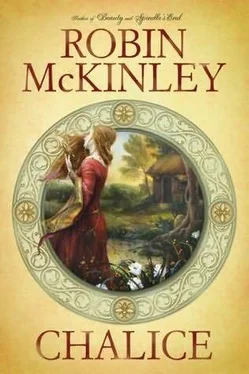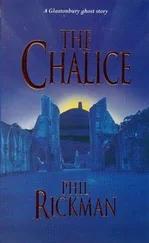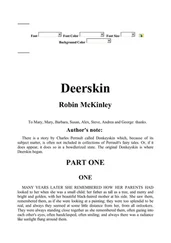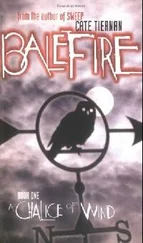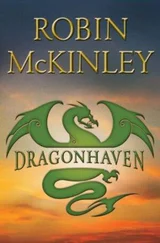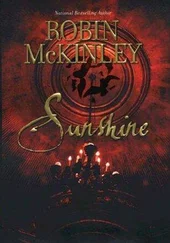“I believe in the luck of the Chalice—of this Chalice. Of my Chalice,” he said, and he took one of her hands and gently placed the honey jar in it, folded both his hands around it, and, that way, raised the jar to his mouth; together they tipped it, and she saw a flash of gold, brighter even than her bees’ bellies, as the honey poured onto his tongue.
They dropped their linked hands, but Mirasol’s free hand found one of the Master’s, and when they turned to look round them, they did so with their hands clasped.
Other folk had begun to move uncertainly through the swirls of bees flung over the faenorn ground. There was a muted exclamation when they found Horuld’s body. Mirasol looked over at it, almost indifferently, but with a touch of fear like a bad memory. It was, at first glance, difficult to differentiate from the dead bees that had covered it. He was black and shrivelled, as if burnt in a fire to temper sword steel, his legs drawn up and his hands curled into claws. He wasn’t recognisable as Horuld; he was barely recognisable as human.
The Overlord made an inarticulate sound, of grief or of rage. He did not move from where he stood—from where he had stood since the sword box had been opened, and the Heir had danced lightly forward to kill the Master—but he made a sharp gesture, and two of his folk ran to the carriage and, after a moment’s confusion, brought a blanket to where the pathetic remains of Horuld lay, and wrapped them up in it. Mirasol thought, watching, that what was left weighed nothing at all, as if it were barely more than ash, and would have fallen to dust by the time it was carried to…she thought, I don’t even know Horuld’s home demesne. Deager told us—that among many other things—but I don’t remember. Or perhaps the Overlord will take it to his own great estate outside the capital city, and bury it there.
But Horuld—what was left of Horuld—was being taken away. Away from Willowlands. That was all that mattered.
She was still watching as the two men carried their light burden back to the carriage, when her gaze crossed the Overlord’s. He was staring at her, his face blazing with…something she could not read, and did not want to. When he had looked at her long enough, his scorching stare shifted to the Master, standing handfast beside her.
The Grand Seneschal had followed her more slowly to the foot of the stairs and stood now on the shore of the bee-ocean, its outer limits barely brushing his toes. He too had been looking at the Overlord, but he felt Mirasol’s gaze, and he turned to look at her, smiled faintly and began to wade toward them. When he came close enough to speak privately, he murmured, “I had taught myself to like the prospect of retirement; of enough sleep every night, and meals taken at table, not at my desk. But you will need me, I think. Your Chalice, Master, sees all things clearly, which is both her strength and her weakness.”
Mirasol could feel her cheeks go hot; it was true, she could, at this moment, only think that they had won, after all, won when there was no possibility of their winning. In a moment she would remember that she had made a bad enemy, and that the game was not over, and perhaps would never be over in her lifetime. Her mind shifted immediately to its second-most familiar track: after the question of what cup to mix next was always the question of what knowledge to seek next. Had any faenorn before now been won or lost by external agency? And had there been thereby any attempt to set its result aside, to declare it void?
No. It would not happen in this case, whatever tradition there might be—and she would find out if there were any such tradition. No Master who could guide and direct the earthlines all over his demesne from self-exile in his rooms at the House would have his demesne taken away from him. No such Master who was also human.
The Overlord was still staring at the Master, and he seemed utterly absorbed in what he was thinking, but at the sound of his carriage door closing on what had been the Heir he turned on his heel and strode back to his carriage himself. Someone leaped forward to open the door again for him.
He climbed the carriage steps as if treading on the bodies of his enemies, and the squeal of the springs sounded like a protest or a lament. He turned and sat down, now staring straight ahead, facing the padded seat where—presumably—Horuld had sat on his journey here, the journey both had confidently expected to result in his assumption of the Mastership of Willowlands. Briefly Mirasol imagined a pathetic lump, blanket-shrouded, on that seat now.
The Overlord’s folk dithered a little, and then moved to their places in the smaller carriage or mounted their horses. Mirasol suddenly recognised Deager: he looked twenty years older and…frightened. She wouldn’t have known it was he to look at his face; it was his walk that she recognised, and was shocked, then, at the face he turned toward her, toward her and her Master and the Grand Seneschal, standing only a little distance from him, in the dark, eerie, temporary new landscape created by the bees who had died to keep the demesne for its real Master, and out of the hands of the Overlord and his false Heir. Deager turned toward them only long enough for her to identify him, then turned away quickly, and almost ran to his carriage, the second, smaller, plainer one behind the Overlord’s own.
Coachmen were clambering up to their perches and taking up reins; postilions let go horses’ heads and climbed to their places. The Overlord’s party left without saying a single word since Horuld had cried “I’m burning!” although a few of them glanced back, as Deager had, at the House, its Master, Chalice and Grand Seneschal, as they turned down the drive. The Overlord’s coachman was one of those who looked; but of them all only three of the riders following the carriages, out of the Overlord’s sight even had he stopped staring at the seat in front of him and chosen to look round him, gave the proper salutation to the faenorn victor.
Mirasol, holding her Master’s hand in hers, remembered thinking that as Chalice, witness and cup bearer, she would be spared having to make that sign to Horuld.
“I am grateful to have a Chalice who sees clearly, and will gladly bear her weakness for her strength,” said the Master. “I fear that she will have to teach me to see anything at all—everything. You will have to say to me ‘House,’ ‘tree,’ ‘stair,’ ‘horse’…” and as he spoke, while she could hear that he spoke in jest, she could also hear that he spoke the truth: he had to make an effort, each time, as he identified House, tree, stair and horse.
“‘Bee,’” said the Grand Seneschal. “‘Circle,’ for we will need a new one. I’m not sure I wish to depend on any apprentices the current lot have bred up to their ways of thinking either. We will have to hope the finding rods agree with us. I am not looking forward to prying them off Prelate, however. I suspect he will resist. I haven’t seen Prelate today at all, have you? If he’s run away I hope he left the rods behind. Is there a cup of augury, Mirasol?”
“Yes,” said Mirasol, “but I haven’t learnt to use it. There’s always been so much else…we may not have to look for everyone. Perhaps we can start with a shepherd and a butcher.” She thought of the woman she had met the day she came to the House to borrow ponies and panniers, who had called the bee that had landed on her shirt front “little missus.” “And perhaps I know a gardener to make a third. And perhaps they will find something comfortably in common with the philosophy of a woodskeeper. And with learning by doing, when you don’t know what you’re doing.”
“It has worked well enough for you,” said the Grand Seneschal. “For my first task I shall see to it that no one in all the demesnes under the king does not know the story of how Willowlands won back its Master from the priesthood of Elemental Fire—for that is how the tale shall go.”
Читать дальше
